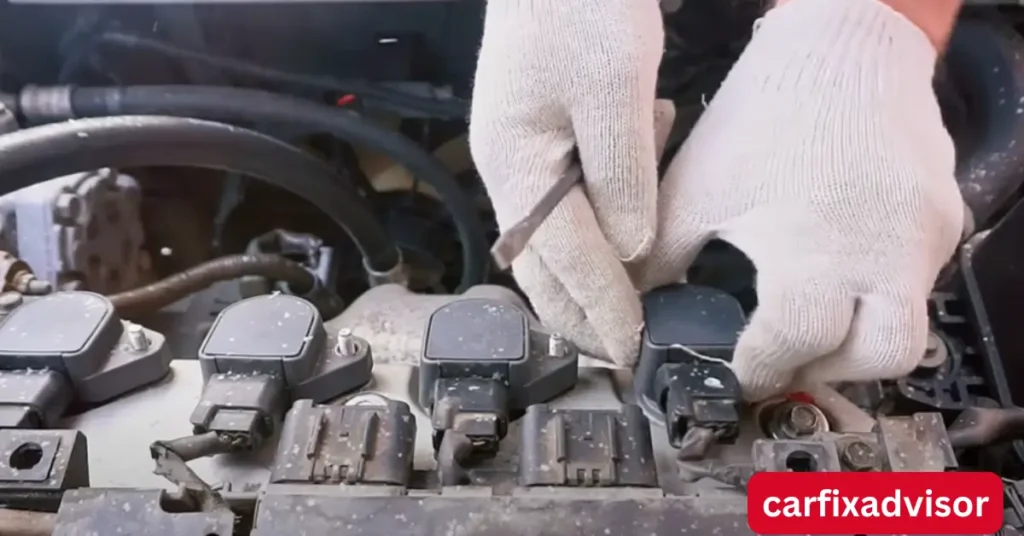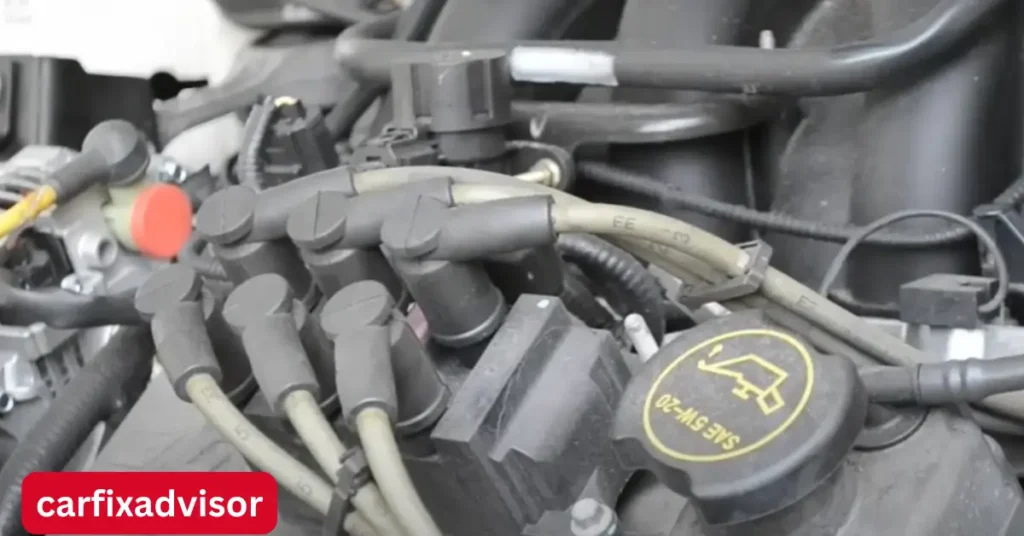The symptoms of bad ignition coil are often subtle at first but can significantly affect your vehicle’s performance if ignored. As a crucial component of your car’s ignition system, the ignition coil delivers the necessary voltage to spark plugs, helping your engine fire properly. When this part fails, it can cause a series of problems that lead to poor engine performance, stalling, and potential damage to other engine components. Understanding the symptoms of bad ignition coil can help you identify issues early and take corrective action before they become costly repairs.
In this article, we’ll discuss the common symptoms of bad ignition coil, explain how a faulty coil can impact your engine, and provide guidance on how to address these issues before they get worse.
What is an Ignition Coil?
The ignition coil is responsible for converting the low voltage from your vehicle’s battery into the high voltage needed to create a spark at the spark plugs. This spark ignites the air-fuel mixture in the engine’s cylinders, ensuring the engine operates smoothly.
Most modern vehicles use coil-on-plug (COP) technology, where each spark plug has its own dedicated ignition coil. This system improves performance, fuel efficiency, and emissions compared to older designs that used a single ignition coil connected to all the spark plugs.
Here’s how an ignition coil works:
Primary Winding: The ignition coil contains a primary coil, which is a wire wrapped around a magnetic core. When the battery sends current through this coil, it generates a magnetic field.
Secondary Winding: The secondary coil consists of a higher number of wire turns. When the magnetic field collapses, it induces a much higher voltage in this coil.
Voltage Spike: This high voltage is sent to the spark plugs, where it generates a spark that ignites the fuel-air mixture in the engine.
The coil-on-plug system eliminates the need for a distributor, providing more precise control over ignition timing and improving engine performance.
How Long Do Ignition Coils Last?
In general, ignition coils last between 80,000 and 100,000 miles, but several factors can influence their longevity:
Driving Conditions: Heavy traffic, frequent acceleration, and high temperatures can accelerate wear and tear on the ignition coil.
Vehicle Age: Older vehicles may experience more strain on ignition system components, including coils, which may lead to premature failure.
Engine Maintenance: Poor maintenance of other engine components, such as spark plugs or fuel injectors, can cause additional stress on the ignition coil, leading to earlier failure.
While ignition coils are designed to last for a long time, external factors like these can lead to symptoms of bad ignition coil developing prematurely.
Key Factors Contributing to Ignition Coil Failure
Several conditions can increase the likelihood of ignition coil failure, contributing to the symptoms of bad ignition coil. Let’s explore the key factors that can cause your ignition coil to go bad:
1. Incorrect Air-Fuel Ratio
If your engine runs too rich (too much fuel) or too lean (too much air), it can strain the ignition coil. A lean mixture generates excessive heat, which can damage the spark plugs and the ignition coil. On the other hand, a rich mixture leads to carbon build-up on the spark plugs, forcing the ignition coil to work harder.
Either way, the ignition coil is forced to overcompensate, increasing the risk of failure and triggering the symptoms of bad ignition coil.
2. Faulty Spark Plugs
Spark plugs that are worn out, improperly gapped, or damaged can prevent the ignition system from working efficiently. A malfunctioning spark plug forces the ignition coil to work harder to generate the proper voltage.
In some cases, the spark plug gap may become too wide, causing the ignition coil to deliver excess voltage, which can strain the coil and result in a bad ignition coil symptom.
3. Moisture Exposure
Ignition coils, especially in coil-on-plug systems, are positioned directly above the spark plugs, making them susceptible to moisture and oil exposure. If there’s a valve cover leak, oil may seep into the ignition coil housing, causing it to fail prematurely.
Moisture and oil contamination can damage the ignition coil’s electrical components, triggering symptoms such as poor engine performance or misfires.
4. Electrical Overload
Overheating or electrical surges can also contribute to symptoms of bad ignition coil. Problems with the alternator, battery, or electrical system can cause improper voltage to reach the ignition coil, potentially burning out the coil.
Common Symptoms of Bad Ignition Coil
Recognizing the symptoms of bad ignition coil early can help prevent further damage to your engine and ignition system. Below are the top signs that indicate a failing ignition coil:
1. Check Engine Light
The check engine light is often the first sign that something is wrong with your vehicle, and it may come on when there’s an issue with the ignition coil. Modern vehicles are equipped with an On-Board Diagnostics (OBD-II) system that monitors engine performance.
If a coil failure occurs, the OBD system will trigger the check engine light and store a diagnostic trouble code (DTC) that can help a mechanic identify the problem. This is one of the most reliable symptoms of bad ignition coil.
2. Difficulty Starting the Engine
If the ignition coil is failing, it will struggle to provide the necessary voltage to the spark plugs, leading to difficulty starting the engine.
In some cases, vehicles with a single ignition coil may fail to start completely. Vehicles with coil-on-plug (COP) systems may start, but they will often exhibit symptoms of a “dead” cylinder, such as rough starts or engine hesitation.
3. Engine Misfire
Misfiring is one of the most noticeable symptoms of bad ignition coil. If your engine misfires, you’ll feel vibrations, shaking, or jerking, particularly during idle or acceleration. The engine may feel like it’s struggling to run smoothly.
A misfiring engine not only affects performance but can also damage other engine components. If the misfire is severe, the check engine light may flash, indicating a critical issue with the ignition system.
FAQs on Symptoms of Bad Ignition Coil
1. How can you tell if an ignition coil is bad?
A bad ignition coil often leads to noticeable engine performance problems. Common symptoms include:
Engine misfires or rough idling
Reduced fuel efficiency
Difficulty starting the engine
Check Engine Light turning on
Lack of acceleration or hesitation while driving
These signs usually appear when the coil fails to deliver proper voltage to the spark plugs.
2. How to tell if a coil needs replacing?
You can tell a coil may need replacing if:
You hear frequent engine misfires
There’s a significant drop in power or performance
Your car stalls unexpectedly
Diagnostic trouble codes related to ignition are present after a scan
Testing with a multimeter or having a technician perform a coil test can confirm if replacement is necessary.
3. What happens if an ignition coil is damaged?
A damaged ignition coil disrupts the combustion process by not supplying enough voltage to the spark plugs. This can result in:
Poor engine performance
Higher emissions
Increased fuel consumption
Engine backfiring or jerking
In severe cases, it can cause damage to the catalytic converter if left unresolved.
4. Are ignition coils an easy fix?
Yes, in most vehicles, ignition coils are relatively easy to replace. They’re usually mounted on or near the engine and accessible with basic tools. However, the difficulty may vary depending on your car’s make and model. If you’re unsure, it’s always safe to consult a mechanic or refer to your vehicle’s repair manual.


